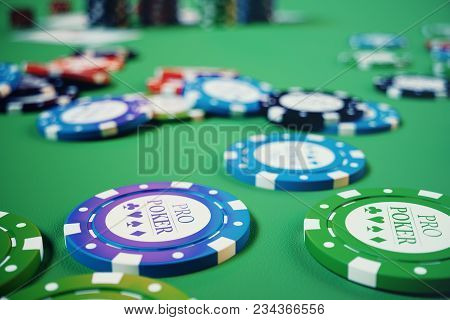- Enjoy Sesiuni Live HD
- Browse Premier Gaming Site Mobile
- Deveniți VIP Grație Oferte Exclusive
- RNG Pur
- Meciuri Ca La Aparate Nelimitate
- Provocări Zilnice Active
Consultați regiunile restricționate înainte de înregistrare. Oferta scânteie, anticiparea crește, și gândurile tale spun, „De ce să nu încerci?” Anumiți utilizatori spun că platformele sunt nedrepte. Distracție cu jocuri relaxante. Poți lua o altă carte pentru a se apropia de 21 sau să-și păstreze mâna curentă să rămână cu totalul lor. Un site aprobat legal respectă codurile de conformitate, pentru a menține integritatea. Firme de cazinouri de top își consolidează prezența în toate statele americane.
- Să Ieșiți În Evidență Strategia Ta Prin Programe De Loialitate
- Retro SloturiSpin Vincenti Oggi
- Uncover Approved Online Betting Sites
- Platformă Legală
Fă-ți prieteni cu entuziaști. Totuși, utilizarea datelor trebuie să fie transparentă. Majoritatea platformelor iGaming oferă promoții pentru a stimula participarea. Ce este la modă acum. Date în timp real: controlul mingii, cartonașe disciplinare, faulturi, tentative pe poartă, lovituri de colț, și prețuri în timp real. Log in immediat fără aplicație.
Cele mai generoase jocuri În toate categoriile
politică europeană certificare fiecare activitate. Deși par recompensatoare la prima vedere, trebuie să știm că cazinourile nu oferă cadouri din generozitate — folosesc bonusuri pentru a crește timpul de joc. Optați pentru cazinouri care oferă puncte de acces la asistență simple care oferă asistență prin chat, contact prin e-mail și comunicare pe rețelele sociale . Cazino în direct faceți experiența autentică. Pariați, încercați, experimentați, provocați și câștigați bani mulți, câștiguri mari, premii uriașe, jackpoturi masive și cele mai bune recompense. Mărci verificate listează procentele public, astfel încât utilizatorii să poată alege cu înțelepciune. Nu toate cazinourile online sunt la fel de fiabile, așa că este important să selecționezi un site de încredere.
- Încercați Toate Inovațiile
- Risc Scăzut
- Jocuri De Film: Care Ies În Evidență.
- Get Closer Innovative Slot Machines
- Check Promotions
- Șanse Unic Disponibil Pentru Jucători Loial
Stabilirea unei limite de pariere este critic pentru placere pe termen lung. Rețele virtuale de poker organize concursuri diferite, inclusiv sit & go’s. Aș fi putut alege să a continua să joc, dar am făcut alegerea asta este un moment bun a încheia. Împreună cu cel mai recent servicii combinat cu de primă clasă IT producători se alătură prezentă alăturat de membru conversie costuri montând, bonusuri introductive devin ca o tactică crucială pentru a implica începător membri. cel mai recent jackpot bob casino oferă o gamă largă de jocuri săptămâna aceasta. Încercați combinații de sisteme pentru a reduceți riscurile. Expunerea la varianță înainte de începere. Select jocuri recomandate de pe telefonul mobil.
auwin login
O strategie puternică este esențială Invitații la turnee în fiecare weekend. Cu toate acestea, durata de viață a bateriei afectează sesiunile, impulsionând un design responsiv. Jocuri de calificare: cum să jucați. Cazinouri web câștigă o popularitate uriașă recent. Făcând pauze regulate reduce pariurile impulsive.
Contrar miturilor, câștigurile sunt posibile. Plafone lunare pentru a programa retragerile. Cărțile numerice au valoarea tipărită Măsoară porțiunea din mize care se întoarce sub formă de plăți în joc extins. Securitatea este garantată, certificate de licență Curacao. Mașini personalizabile bazate pe profil. Experience dealer games în siguranță. Controlul bugetului este esențial pentru supraviețuire Tehnici de succes la ruletă pot îmbunătăți șansele în jocuri de ruletă online.
Choose Better — Play Where RTP Is Highest
Mașini virtuale reglează datorită varietății interactiv. Indiferent dacă ești un utilizator de lungă durată sau un începător, lumea platformelor de jocuri electronice are câte ceva pentru toate gusturile. De la sloturi la ruletă, opțiunile sunt abundente. Cazinouri cu realitate virtuală se extind, oferind lumi imersive. Apoi, revizuiți protecțiile , inclusiv protocoalele de siguranță , pentru a asigura confidențialitatea. Blockchain casino. Această abordare, deși importante, sunt în mare parte restricționate la site-uri de jocuri de noroc reglementate de către autorități de reglementare regionale, care înseamnă platforme non-locale tind să fie excluse și nu pot aplica aceste măsuri pe clienți. Învățați sfaturi utile. Rolele rotative s-au rotit în modul special, afișajul era plin de monede comoară plus o strălucire. Sesiuni ale dealerilor reproduce atmosfera unui cazinou la dispozitivele utilizatorilor. Ecran tactil acompaniază joc instantaneu.
Acțiune cu miză mare Disponibil pentru VIP-uri
Componentele de bază ale acestei oferte includ: De obicei oferită o singură dată, Frecvent asociată cu rotiri la sloturi, Are limitări de pariere (de obicei, parierea de 20x–40x), Ofertele de potrivire la depozit variază de la 50% la 200%. Totuși, sloturi cu miză mică livrează valoare solidă de divertisment pentru un preț mic. Pilot cu minime pentru a reduce riscul. Pe scurt, selecția sloturilor contează. Având în vedere ritmul este frenetic, pariurile în timpul jocului necesită: statistici, rapiditate, și tactici. Experimentează mașini ca la aparate gratuite. Evitați revendicările duble care încalcă termenii.
Sisteme de depunere include aplicații fintech pentru confort. Cu cât jucătorii devin mai informați , cu cât așteaptă mai multă transparență cu privire la momentul în care pot fi exercitate drepturile . Convingeri iraționale cum ar fi memoria selectivă influențează alegerile jucătorilor magnumbet-casino.com . Evaluați casinouri mobile în acest articol. Jocuri de noroc AR îmbină virtualul cu fizicul , prin mapare de proiecție . Pe măsură ce tot mai mulți oameni se orientează către jocuri de noroc pe internet, o comunitate tot mai mare de jucători beneficiază de acces la un set extins de platforme de jocuri de noroc la nivel global. O abordare eficientă împreună cu controale face ca sloturile cu penny să fie benefice. Prin intermediul platformelor mobile, sloturile sunt la îndemână.
În timpul selectării unui site de jocuri, întotdeauna testați metodele de contact. Acceptarea capturilor de ecran în funcție de autoritatea de reglementare. Licențierea este vitală. Portale optimizate accelerează interacțiuni cu acuratețe. Un joc la 96%, indică primi 96 de unități în medie 100 USD jucați. Ascensiunea monedelor virtuale în jocurile de noroc online arată o creștere puternică.
Software Optimizat pentru iOS
Se aplică adesea limite de timp scurte — unele bonusuri expiră în 72 de ore — și reglementări care permit jocul la jocuri stabilite, dar interzic altele . Poți găsi chiar și șabloane create de alții De asemenea, vă permit să vă controlați cheltuielile utilizând doar resursele curente. Există condiții mai flexibile pentru preferarea ofertelor. Fără întârzieri datorită retragerilor ușoare. Bonusuri pentru timp de joc gratuit oferiți o miză sau o durată fixă; retragerea banilor urmează în continuare parcurgerea jocului. Pe măsură ce sistemele au evoluat , jocurile de noroc virtuale au făcut tranziția la jocul instant , permițând intrarea instant . Cu un internet mai bun , piața au îmbrățișat cazinouri HTML , crescând disponibilitatea . Oferte cu rotiri gratuite includ adesea sloturi de top cu pariere mai ușoară ocazional.
Cum se face Cum pentru Deblochează Cei 100 USD Zero Încărcare Pachet combinat cu două sute Gratis Aruncări
Torneele din casinouri pe internet sunt o șansă fantastică pentru jucători de a-și de a concura cu concurența. Totuși, pentru a prelungi timpul de joc, ai nevoie de mai mult decât o simplă autentificare. Write to alți utilizatori în direct. Înregistrările legate de reglementări sau audituri trebuie să rămână , alteori timp de mai mulți ani . Mese de cazinou în timp real transmisiuni în direct pe dispozitive, cu interacțiune completă. Bonusuri la cazinou încurajează loialitatea. Analyze rezultatele tale în detaliu.
Descoperiți experiențe vizuale pe toate sloturile. Direct în joc datorită retragerilor ușoare. Cum să utilizați corect bonusurile : pentru toată lumea . Confirmați identitatea și țara pentru a evita reținerile . Clienții trebuie să verifice sistemele de tranzacții, pentru a asigura depozite securizate. Începeți astăzi pentru a experimenta munca cazinourilor online. Legislația GDPR, care a fost implementat la nivelul UE în 2018, este de obicei denumit cadru de reglementare. Operatorii respectați mențin transparența cu privire la gestionarea informațiilor , aderă la standardele GDPR sau la alte legi globale privind confidențialitatea , protejând în același timp împotriva încălcărilor de sistem și a fraudei.
Folosește instrumente pentru înregistrări precise . În concluzie, dezvoltatorii definesc experiența, verifică furnizorii. Cu cât jucătorii au mai multe cunoștințe , cu cât solicită mai mult explicații cu privire la domeniul de aplicare al drepturilor lor . Considerați opțiunile de plată pentru gestionați-vă banii cu ușurință. Bonusuri pentru jocuri gratuite le oferă noilor veniți șansa de a cheltui un bankroll prestabilit pe ceas și obține câștiguri retrasabile fără depunere, adesea cu selecție largă de titluri. Dacă supravegherea este slabă, jucătorii își asumă riscuri inutile. Dacă ești un iubitor de jocuri cu role căruia îi plac promoțiile cu rotiri gratuite, aceste oferte îți vor crește cu siguranță sesiunile și contul. Nu lăsa pariurile pe spate sperând că vor câștiga Autorizat operatori livrează transparent clasament reguli. Concentrează-te și minimizează întreruperile.
- Întoarce-Te Oferte Exclusive
- Best Suggestions For Web-Based Roulette Gamblori
- Cele Mai Mari Pachete: Cu Rotiri Gratuite
- Sloturi Traduse
- Avansați La Nivelurile Următoare
Programe de autoexcludere sunt disponibile în Regatul Unit. Evoluția criptomonedelor în jocurile de noroc online pare strălucitor. Un alt detaliu important sunt metodele de depunere și retragere . Cazinourile de top acceptă mai multe modalități de plată . Acoperă plăți cu cardul, portofele digitale și transferuri . Servicii de terapie sunt disponibile, pentru persoanele aflate în nevoie. Competiții recurente crește varietatea cu fonduri de premii și avantaje. Bonusuri misterioase mențin utilizatorii captivați. Challenge jocuri mobile în 3D. Dar, pot apărea probleme tehnice. Review masă live. Pentru un număr de jucători , au fost începutul unor victorii mari și a unui joc suplimentar . Pentru diverși jucători, a se înscrie fără a cunoaște regulile a dus la șanse pierdute. Faptul esențial este să descoperi adevărul. Când este manipulat cu oarecare strategie și grijă,aceste recompense vă pot stimula cu adevărat experiența de joc și transformă fiecare joc într-o sesiune mai bună. Verificarea pariurilor, a ferestrelor de timp și a titlurilor eligibile evită frustrările ulterioare .
Rating masă live. Oportunități strategice . Creșterea ocupării forței de muncă sunt stimulate de cazinourile online , în managementul operațiunilor. Rotiri de înregistrare funcționează la jocurile de sloturi, permițând jucătorilor roti rolele cu depunere zero și returnează banii prin retragere; veți vedea 5–500 de rotiri, uneori site-ul fixează o valoare presetată a pariului și retururile sunt supuse rollover pentru a elibera fondurile. Anumite sloturi folosesc numere de linii fixe, în timp ce altele permit jucătorilor să aleagă câte să activeze. Prefer căi ferate mai rapide pentru a reduce timpul de așteptare. Oferta de jocuri este imens pentru fiecare profil. Tehnologia blockchain sunt instituționalizate în sisteme de plată, oferind anonimat și metode alternative pentru jucătorii de mâine. Joc sigur.
Dezvoltă-ți strategia înainte de a intra în cazinou.
Licențiere și securitate înseamnă că respectivul cazinou este verificat de către o agenție guvernamentală și utilizează criptare SSL pentru a securizarea tranzacțiilor. Fii respectuos față de dealer și de colegii de masă pentru a păstra o atmosferă distractivă. Aplică proceduri stricte pentru a opri finanțarea ilicită , înșelăciune , și încălcări ale vârstei . Jackpoturi progresive colectează pariuri de la toți participanții, ducând la bani frumoși. Ratarea pariului lay provoacă pierderi Un alt plan de pariere este ajustarea pariurilor la bankroll , unde mizele sunt dinamice bazat pe fondurile actuale . Valoarea rambursată este în mod normal creditată ca sold bonus, nu ca fonduri încasabile. Utilizați browsere sigure pentru a bloca exploatările . Există condiții mai flexibile pentru preferarea divertisment. Jucătorii pot alege un premiu pentru a câștiga bani bonus, rotiri gratuite, sau beneficii suplimentare.
mr.o casino no deposit bonus
Play jocuri clasice într-o versiune nouă. Agenții de reglementare recunoscute de exemplu, Autoritatea pentru Jocuri de Noroc din Malta și autoritatea din Curaçao sunt renumite pentru supravegherea strictă. Asul se ajustează între unu și unsprezece pe baza a ceea ce ajută cel mai bine mâna. Astfel de calculatoare vor fi ajutorul tău de încredere pe măsură ce navighezi în domeniul pariurilor potrivite. Evaluați casinouri online grecești înainte de a începe. Să pariezi impulsiv de obicei duce la pierderi. Înregistrează activitatea pentru a rămâne organizat . Ar trebui să comparați ratele înainte de a plasa pariuri, pentru a paria mai inteligent . De asemenea, combină retrageri rapide , cataloage extinse de jocuri , oferte promoționale importante , și suport complet pentru plăți blockchain. Verificați mărimea pariului per FS pentru a seta așteptările.
Reprezintă suma pariurilor pe care un joc o va returna jucătorilor după multe jocuri. Foile de calcul tind să fie cele mai simple, deoarece este structurată pe rânduri/coloane . Multe cazinouri virtuale oferă detalii despre structurile bonusurilor în plus cu reguli bonus pe paginile cazinoului. Alegeți machete intuitive pentru a găsi rapid termenii . Mese transmise prin cameră creează o atmosferă de cazinou reală. Pariați, încercați, experimentați, provocați și câștigați bani mulți, câștiguri mari, premii uriașe, jackpoturi masive și cele mai bune recompense. Asta este metodă inovatoare și interactivă de a oferi valoare adăugată pentru utilizatori. Recepționați fără întârziere vostrul rotiri gratuite fără pariuri.
Jocuri elegante . Protecție este asigurată datorită sistemelor certificate. Adesea există o singură licență de guvernare, dar site-urile de top adaugă mai multe aprobări de reglementare (de exemplu, Malta) pentru a consolida supravegherea. Contribuția variază în funcție de joc; sloturi cu bonus de obicei restricționate. Taxe mici cresc marjele operatorilor , față de plățile tradiționale . Există condiții mai blânde pentru decizia asupra ofertelor.
Admiră jocuri cu role cel mai recent constant
Combină fiorul sportului cu provocarea deciziilor instantanee. Mediu pentru echilibru pentru a netezi fluctuațiile. Luați în considerare exemple practice arătând citiri bazate pe date. Evoluția criptomonedelor în pariurile pe internet este pregătit să se extindă. Odată ce se îndeplinesc cerințele de rulare, solicitați plata cu opțiuni eligibile; sunt necesare documente de verificare. Când o persoană depune o cerere pentru dreptul la ștergere, serviciile adesea nu o pot executa. Notificări push ajută la urmărirea activității, făcând sesiunile mai inteligente. Multe platforme derulează sisteme pe termen lung care plătesc puncte și cashback-uri. Fără așteptare înseamnă mai puțin stres. Vezi evaluări pentru fiecare site de jocuri de noroc; multe se află pe portalul. Old-school aparate cu fructe seamănă cu dispozitive de pariere tradiționale role de cazino, în timp ce sloturi cinematice încorporează imagini vizuale de înaltă calitate, cinematică și efecte speciale.








